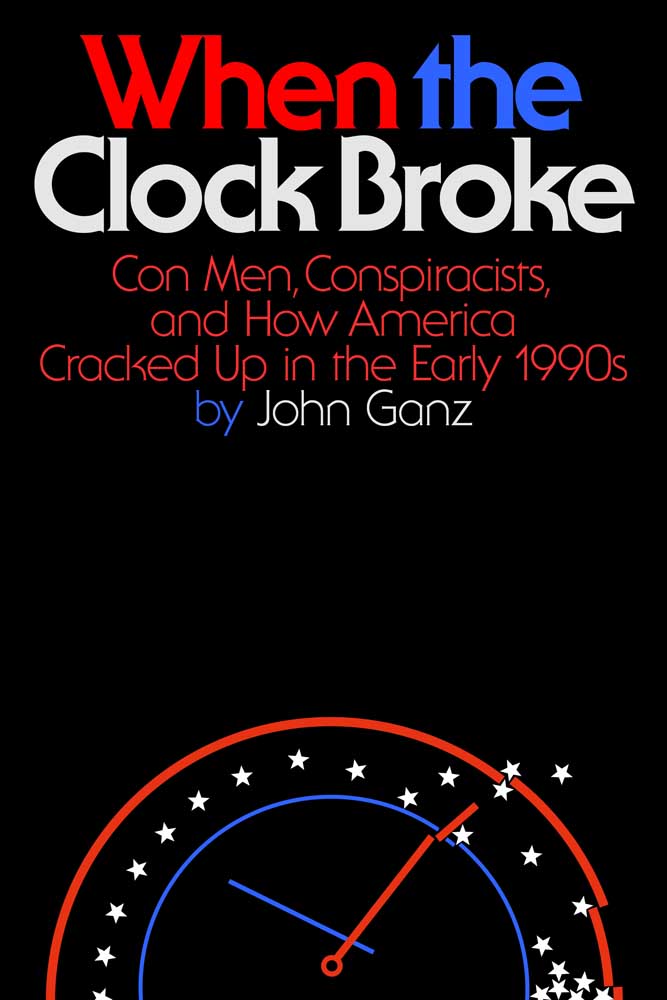Commentary: The 90’s sparked our current political chaos
Published 9:00 pm Thursday, June 13, 2024

- books-ganz
In 1992, the political theorist Francis Fukuyama famously declared “the end of history.” The Soviet Union had imploded, and liberal democracy appeared triumphant and invulnerable. The placid new world that emerged might prove underwhelming — Fukuyama prophesied that it would be bereft of the “ideological struggle that called forth daring, courage, imagination, and idealism” — but at least it would be restful.
Alas, the ’90s were not quite as uneventful as Fukuyama predicted they would be. In a new history of the end of history, “When the Clock Broke: Con Men, Conspiracists, and How America Cracked Up in the Early 1990s,” the journalist John Ganz shows how a country robbed of its external enemies turned inward and devoured its own. Pundits are fond of characterizing Donald Trump’s political career as “unprecedented,” but in fact he is amply precedented, as Ganz demonstrates in this wry and engaging account of the former president’s crooked and crankish forebears.
“History, as the cliché goes, is written by the winners,” Ganz begins, “but this is a history of the losers.” The losers include such simultaneously risible and menacing figures as Ku Klux Klan leader David Duke, thinly veiled white supremacist and all-around reactionary Pat Buchanan, and kooky populist maverick Ross Perot, all of whom ran for president in 1992. The resultant election cycle was a circus, but it was also a warning that the establishment ignored at its peril, with disastrous — if delayed — results.
The era’s would-be demagogues were able to gain traction because history was far from over for most of the country. While elites congratulated themselves on winning the Cold War and went on conducting bureaucratic business as usual, the working classes suffered. Eight years of Reaganomics had yielded catastrophic inequalities. “The average income for 80 percent of American families declined between 1980 and 1989, while the top fifth of Americans saw an increase of nearly 50 percent,” Ganz writes. Meanwhile, jobs that had been mainstays for much of the population were rapidly vanishing: Manufacturing work was disappearing in the wake of deindustrialization, and white-collar administrative positions were hardly more viable. Throughout middle America, family farmers struggled to compete with big agriculture.
The rejects of what President George H.W. Bush rather menacingly termed the New World Order felt betrayed by their leaders. “Across the country” in 1992, Ganz writes, “polls showed discontent with all options on the table in the primaries.” There was Bush, a disappointingly milquetoast incumbent, and Bill Clinton, a liberal Rhodes scholar and the darling of Washington society. Unsurprisingly, Clinton’s victory did not quell the rising tides of resentment and disaffection. Alienated from the centers of power and hungry for scapegoats, working-class White Americans concocted conspiracy theories and railed against “multiculturalism” and “political correctness.” The inflammatory jingoism that followed — first in the lead-up to Clinton’s presidency, then during the ensuing decades — was no surprise to anyone who was paying attention. Unfortunately, few liberals were.
Ganz is also strangely silent on the question of Trump. Even when the parallels between past and present are most glaring, Ganz leaves his readers to make them out.
Of course, some of the fixations that gripped the country in the early ’90s — for instance, fear of Japanese hegemony — seem almost quaint in retrospect. But other talking points remain uncomfortably familiar. Both Duke and Perot cast themselves as victims of the mainstream media’s bias against conservatives and free thinkers. “It’s like the establishment is closing ranks to prevent an independent from coming through,” Duke told a newspaper when asked why he was so unpopular with the press. One pro-Duke flier characterized him as “a modern David versus the Goliaths of money, power, media, and political corruption.”
Buchanan, by far the most influential and ominous of Ganz’s subjects, anticipated the worst of the MAGA cult when he spoke of a “new nationalism” and proposed to build a wall at the border. It was he who first popularized the term “culture war” (“cultural war” were his exact words) and who most loudly shouted the isolationists’ old rallying cry: “America first!”
Perhaps most recognizable, enduring and damning was a new political style, a brazen commitment to courting scandal and spectacle. If the elder Bush was a staid technocrat, more comfortable working behind the scenes, Ganz’s flashy new populists thrived in the spotlight: They were performers first and politicians second.
“Anyone who wants to govern the country has to entertain it,” Saul Bellow wrote near the start of his 2000 novel, “Ravelstein.” This is a principle that Duke, Buchanan and Perot grasped with a vengeance.








